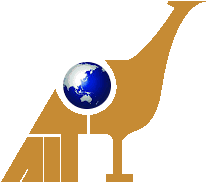Dr. Dela Santa named UP Scientist, first in the field of Tourism
Prof. Edieser DL. Dela Santa, PhD is among the faculty members approved with the award of Scientist Ranks under the University of the Philippines Scientific Productivity System for the 2021-2023 period. Dr. Dela Santa was named UP Scientist I which includes him among the ranks of UP Faculty and Research Staff who embody the highest standards of scientific productivity and professional standing. The award not only bestows esteemed recognition, but appropriate incentives as well to foster a conducive environment for advanced scientific productivity that contributes to national development.

We are thankful to the University for the award. This is special for us because it’s the first time tourism is recognized in the scientific productivity system. We feel we have blazed a trail for local tourism researchers.
Dr. Dela Santa, feels that this achievement is not his alone, because this is the first time Tourism Education and Research is recognized in the UP-SPS.
In 2011, during the Awarding Ceremony of the Scientific Productivity System, Prof. Cecilia Florencio delivered a speech tackling the UP Scientific Productivity award — what it is about, and what goes beyond it: “As scientists let us ask ourselves in what ways and for what ends we use research publications and other research outputs, ours and those of our colleagues, in teaching? More importantly, how do we help nurture desirable research ethos (discipline and ethics) in our academic community?”
Related: About and Beyond the UP Scientific Productivity Award
It was in August 2005 when the UP Board of Regents approved the UP Scientific Productivity System (SPS) which aims to support the development of science and technology, and to encourage and reward the scientific productivity of deserving faculty and research staff.
Since the inception of the UP Asian Institute of Tourism in 1976, the institute has been leading initiatives in research, training, and extension programs that has benefited the national government, local government units, businesses and enterprises, and various tourism stakeholders.
When asked what the Scientist I rank implies, Dr. Dela Santa mentioned that “The award means that hard work and dedication to one’s discipline and scholarly pursuits can lead to gratifying results. Having an enabling environment, one that allows for independent and collaborative work to flourish, is also very important“

Dr. Dela Santa handles subjects in the graduate and undergraduate program of AIT. In several appointment periods, he held administrative positions in the Institute such as Institute Secretary, Director for Academic Affairs, and Director for Tourism Research and Extension Services. In 2016, he was tasked to handle yet another challenging administrative position in AIT when he was appointed as the 7th Dean of the institute.
Edieser as his batchmates fondly call him is also a graduate of the BS Tourism program in AIT. He pursued graduate studies in Saitama University, Japan where he earned his MA in Public Policy (2000). Later, he completed his PhD at the University of Otago, New Zealand (2010).
Prior to the SPS award, Dr. Dela Santa has also received recognitions for his scholarly work in international publications. He has also been a repeat-awardee of the UP Diliman Centennial Professorial Award since 2013. Even with these achievements, Dr. Dela Santa maintains that tourism students have the potential to succeed in their research, and just keep on investing in this chosen field.

Photo courtesy of the UP Diliman Information Office
You can do it too! I was, and still am, a student of tourism, so our backgrounds are the same. Tourism is a fertile ground for research – there is a lot that students can learn and discover. Keep invested in our discipline, “it is a real possession” so to speak.

